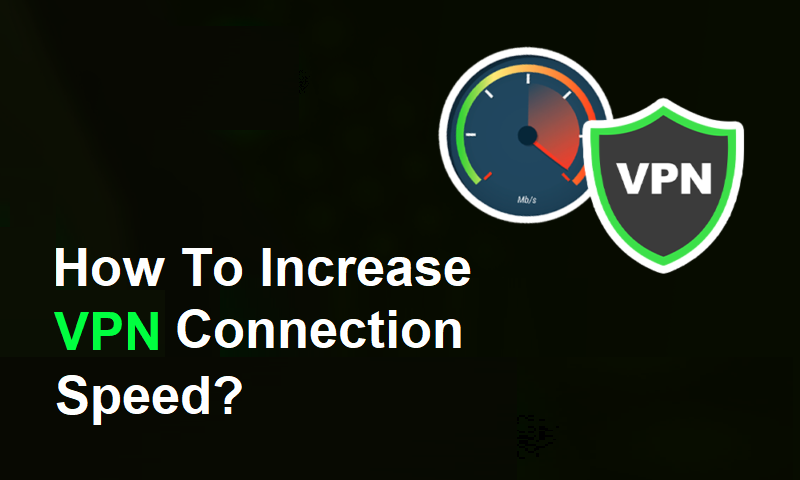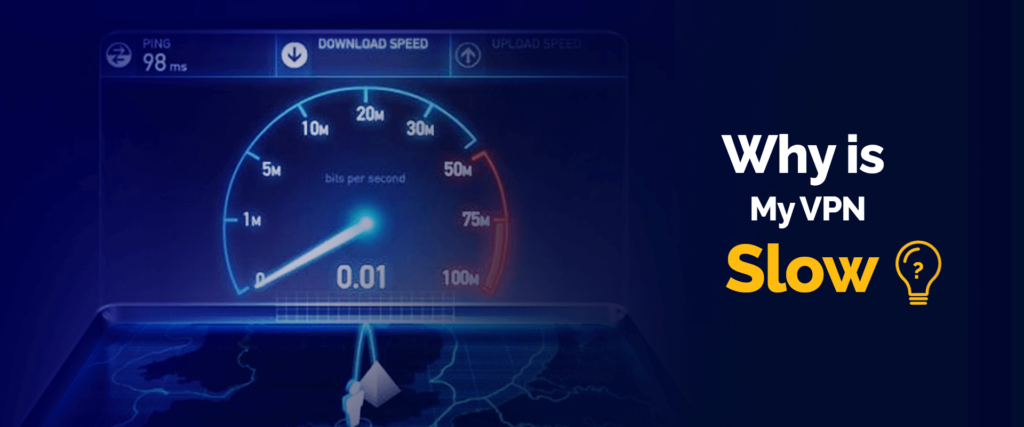
VPN gives all of your network communications additional security. Using a VPN has many advantages and is regarded as one of the most important tools for private browsing in the modern world. Many people would rather connect to public Wi-Fi over a VPN.
VPN ensures online privacy and anonymity in addition to enhancing security. Your network traffic may slow down as a result of the VPN’s requirements for encryption on outgoing traffic and decryption on incoming traffic. The VPN network may respond to you more quickly or more slowly, depending on how you get to each location.
It might be annoying to constantly experience buffering while using streaming services, extremely sluggish download speeds, frequent connection failures when visiting websites, or issues when loading webpages.
VPN gives all of your network communications additional security. Using a VPN has many advantages and is regarded as one of the most important tools for private browsing in the modern world. Many people would rather connect to public Wi-Fi over a VPN.
VPN ensures online privacy and anonymity in addition to enhancing security. Your network traffic may slow down as a result of the VPN’s requirements for encryption on outgoing traffic and decryption on incoming traffic. The VPN network may respond to you more quickly or more slowly, depending on how you get to each location.
It might be annoying to constantly experience buffering while using streaming services, extremely sluggish download speeds, frequent connection failures when visiting websites, or issues when loading webpages.
Can VPN increase Internet speed?

In general, using a VPN is more likely to decrease your internet speed rather than increase it. This is because VPNs encrypt your internet traffic, which can add overhead and lead to a slight reduction in speed. However, there are some scenarios where using a VPN might actually improve your internet speed:
- Avoiding ISP Throttling: Some internet service providers (ISPs) throttle your internet speed for certain activities, such as streaming or torrenting. Using a VPN can mask your online activities from your ISP, potentially bypassing throttling and improving your speed.
- Reducing Network Congestion: VPNs can route your internet traffic through servers located in different regions, which can sometimes result in faster connections, especially if your ISP has congested routes to certain websites or services.
- Improved Security: While not directly related to speed, using a VPN can enhance your security and privacy online, which can lead to a more reliable and stable internet experience.
Overall, while a VPN can occasionally improve your internet speed under specific circumstances, it’s more common for it to have a minor impact on speed due to the encryption process.
Can VPN slow Internet speed?

- Server Distance: The distance between you and the VPN server affects latency. Choosing a server closer to your location minimizes latency and improves speed.
- Server Load: Server load impacts performance, with heavier loads leading to slower speeds. Opt for VPN providers offering multiple servers to distribute load effectively and maintain optimal speeds.
- Protocol Selection: VPN protocols differ in speed and security. Some prioritize speed, while others prioritize security. Selecting an appropriate protocol can help balance speed and security for your needs.
- Encryption: VPNs encrypt and decrypt your traffic, which can add processing time and increase latency. While less complex encryption can provide higher speeds, it may compromise security. Balancing encryption complexity and internet speed is essential to find the right tradeoff for your needs.
VPN: Compatible Across All Devices
The great thing about VPNs is that they allow you to secure many of your devices at the same time; you can install it on your laptop and desktop as well as your router, smart tv, tablet and smartphone, for example. Often you’ll only need one subscription for this.
VPN Coverage: Accessible in Every Country
VPN services offer a valuable feature: the ability to unblock specific online content. This means you can access websites, streams, and subscriptions that might otherwise be unavailable to you. This feature is particularly handy when you’re traveling and want to use your usual services from abroad.
By connecting to the right VPN server, you can browse the internet as if you were in a different country, effectively changing your IP address from anywhere in the world. A VPN can help you obtain an IP address from countries like Japan, the United States, or Germany. Check out our country-specific instructions and recommendations below to learn more!
How to make your VPN faster:
- Change your VPN server location
- Switch between TCP/UDP with OpenVPN
- Change your protocol settings
- Ditch your wireless connections
- Restart your device
- Restart your router
- Turn off your security software
- Turn on MultiHop
Change your VPN server location
Changing to your VPN server should probably be your initial action. Depending on how far away the VPN server is from you, its location will affect your internet speed.As the distance from the server increases, your connection speed drops.
When you’re connected to a remote VPN server, the latency—the time it takes to send a request to a server and receive a response—increases noticeably. You cannot change the physical truth that the VPN speed cannot be increased, no matter how hard you try.
Thus, all you have to do is change your VPN location to distant servers if you want to appear as though you are in a specific country.Should the location not
Change your protocol settings
Each VPN protocol utilizes specific encryption standards to encrypt the tunnel for data sent between you and a VPN server. Some of these protocols are willing to sacrifice performance for top-tier security, while others will do the opposite.
WireGuard is the most modern, fastest protocol on the roster, so switch to that one if you haven’t already. IKEv2 and OpenVPN are two reliable standbys, but they’re not as fast.
Using OpenVPN, switch between TCP and UDP
If you’re working with OpenVPN, which is sometimes your only option, you can switch between transmission protocols to increase VPN speed. OpenVPN functions with either TCP (Transmission Control Protocol) or UDP (User Datagram Protocol).
UDP is faster but less reliable when it comes to actually delivering packages, so it’s usually used for live video streaming. Try switching from TCP to UDP to speed up your VPN connection.
Turn on MultiHop
This one seems a bit counter-intuitive when it comes to making a VPN faster, but sometimes it does work.
If your VPN supports this feature, turn on MultiHop (also known as Double VPN). Depending on your country, the network between the first MultiHop server and the second might be better than what you’d get joining directly, thus automatically improving VPN connection speeds.
Restart your device
Ah, yes, the old reliable “Have you tried turning it off and on again?” method. Unsurprisingly, sometimes it helps with a slow VPN connection as well.
Your VPN service uses complex encryption to ensure that your data is safe and secure. This might be causing a minor conflict with the device and operating system that you’re using. Your operating system may be overwhelmed and need a new programming instruction set, so just reboot.
You can also try using a different device with the VPN (here’s one situation where Surfshark’s unlimited installs come in handy) to see if this helps your situation. It may be due to the settings on your device, which are causing the interference.
Get an online security checklist — join our newsletterEmail address
Restart your router
The solution to your problem may be as simple as closing your current program and restarting the router. There’s a tendency for systems to accumulate junk as they work for extended periods, though it’s less prevalent these days. Stopping and restarting the connection allows your application to begin with a new data set.
Turn off security software
Firewall and antivirus software filters the data that goes out of your device. This process may be slowing down your connection.
You can switch off the security software to check if it’s causing the issue. Keep in mind that doing so makes your device more vulnerable to malware. Therefore, you should leave your antivirus and firewall on when using a VPN, even if it does make the connection slightly slower.
Give up using wireless connections.
Using a wireless connection offers convenience but sacrifices speed and stability due to shared channels and susceptibility to interference. Objects like walls and electronics can disrupt the wireless signal, causing latency. In contrast, wired connections offer less latency and faster internet speeds by bypassing these obstacles.
Boost your VPN speed today
It’s important to have a fast connection for basically everything you do online outside of reading Wikipedia. Follow the tips above for maximum VPN security and accessibility with minimal impact on your connection speed.
Get a fast VPN today!
FAQ
Does a VPN slow down my internet speed?
Yes, using a VPN will slow down your internet speed. There’s simply no way around it. But there are things you can do to make your VPN connection faster. Connecting to a server closest to you and choosing the fastest protocol available definitely helps.
How do I stop my VPN from slowing down my internet?
To speed up a sluggish VPN connection, try these steps:
- Switch VPN server locations to find a faster one.
- Adjust protocol settings; try switching between TCP and UDP with OpenVPN.
- Activate MultiHop for added speed.
- Restart your device to refresh connections.
- Power cycle your router to clear any network congestion.
- Temporarily disable security software that might be slowing down your connection.
- Consider using wired connections for a more stable and faster connection.
Can a VPN increase internet speed?
A VPN can help overcome ISP throttling, a common cause of slow internet speeds. So while it won’t directly make your internet faster, a VPN can definitely help with connection speeds.
What is a good VPN for fast internet speed?
Surfshark stands out as a top choice for speed when it comes to VPNs. It’s renowned for its quick connections, attributed to its use of 10Gbps servers, the fastest protocols available, and an extensive network of over 3200 servers spread across 100 countries.
Thank you for reading!






Leave a Reply